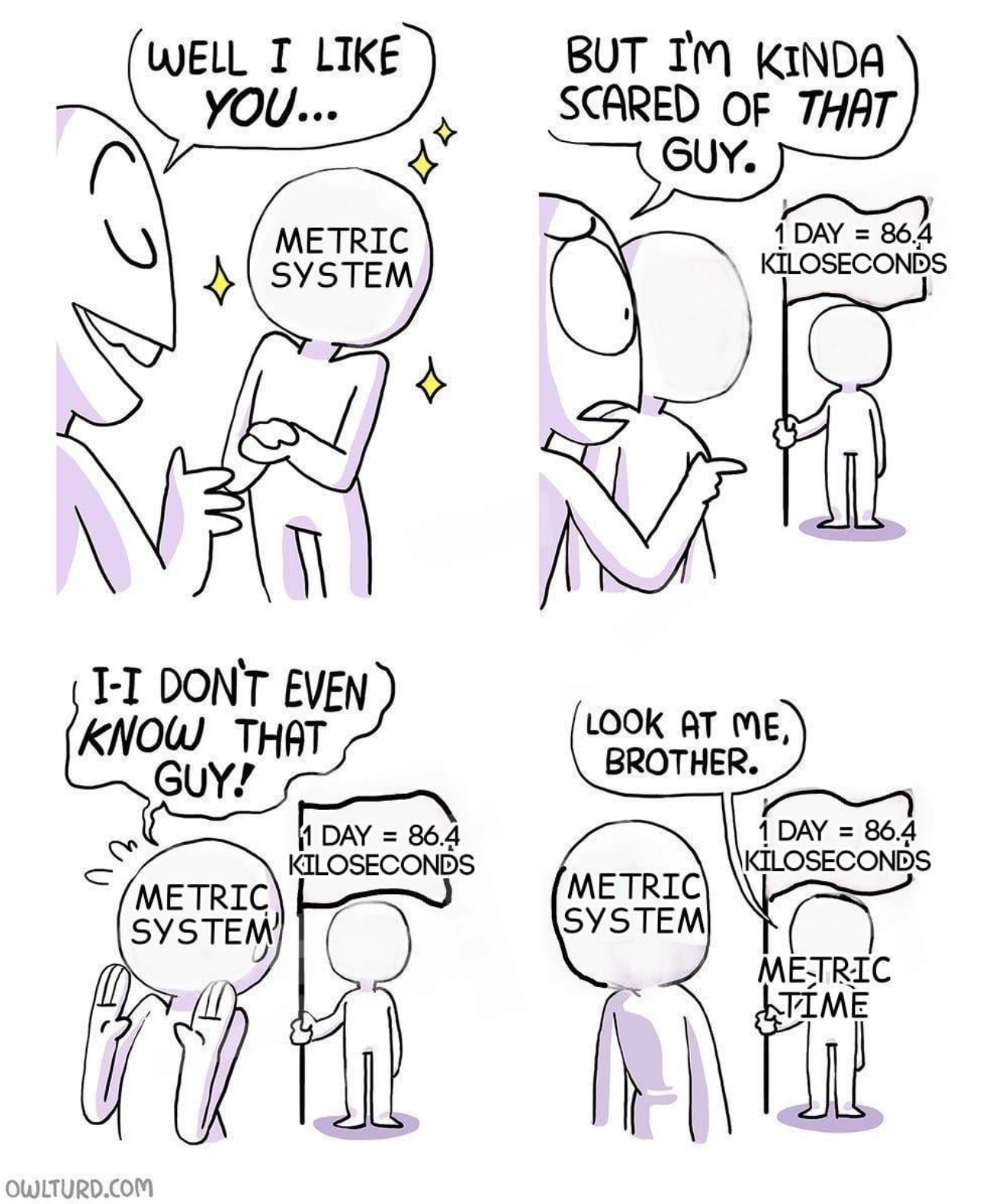this post was submitted on 15 Feb 2024
855 points (95.3% liked)
memes
10322 readers
1804 users here now
Community rules
1. Be civil
No trolling, bigotry or other insulting / annoying behaviour
2. No politics
This is non-politics community. For political memes please go to !politicalmemes@lemmy.world
3. No recent reposts
Check for reposts when posting a meme, you can only repost after 1 month
4. No bots
No bots without the express approval of the mods or the admins
5. No Spam/Ads
No advertisements or spam. This is an instance rule and the only way to live.
Sister communities
- !tenforward@lemmy.world : Star Trek memes, chat and shitposts
- !lemmyshitpost@lemmy.world : Lemmy Shitposts, anything and everything goes.
- !linuxmemes@lemmy.world : Linux themed memes
- !comicstrips@lemmy.world : for those who love comic stories.
founded 1 year ago
MODERATORS
you are viewing a single comment's thread
view the rest of the comments
view the rest of the comments

Why would metric time still use the same seconds? Surely it'd be a different unit that was a nice multiple of 10
Thr second is already a metric SI unit. A day happens to be 86.4 kiloseconds. I'm not sure why that is weird.
Redefining the second would be a lot of work for no real benefit.
Hours, days, weeks are not metric, you wouldn't really say kiloday or centiday.
We're looking at this the wrong way. The problem is the number of seconds not dividing neatly into the period of the day. You're right, adjusting the length of a second is impractical, so let's look at our other options here.
The main issue is that the length of a day is not actually constant. Leap second occur (in either direction) which mean that a day is sometimes one second shorter or longer. Timezones and DST also can make a day a whole hour longer or shorter.
Seconds are a unit for physical measurement. They're always the same length. Minutes, days, weeks, months, years, etc are imprecise shortcuts that are convenient for our society but this convenience sometimes comes at the price of being bonkers units from the physics standpoint.